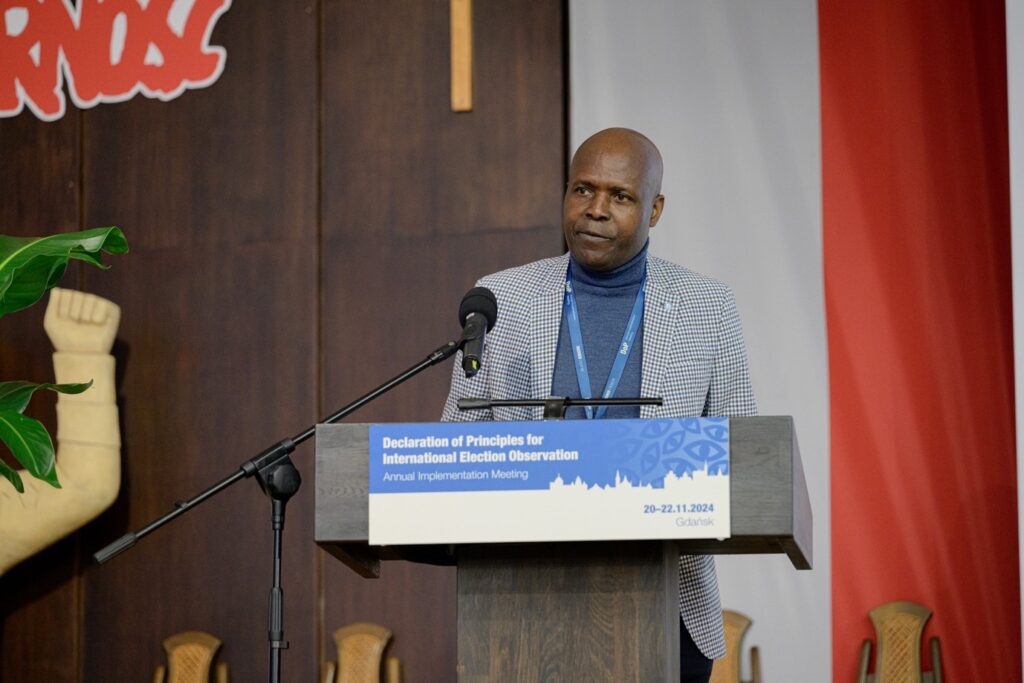DOP 2024
Day 3 Highlights: New tools, inclusion and generative AI
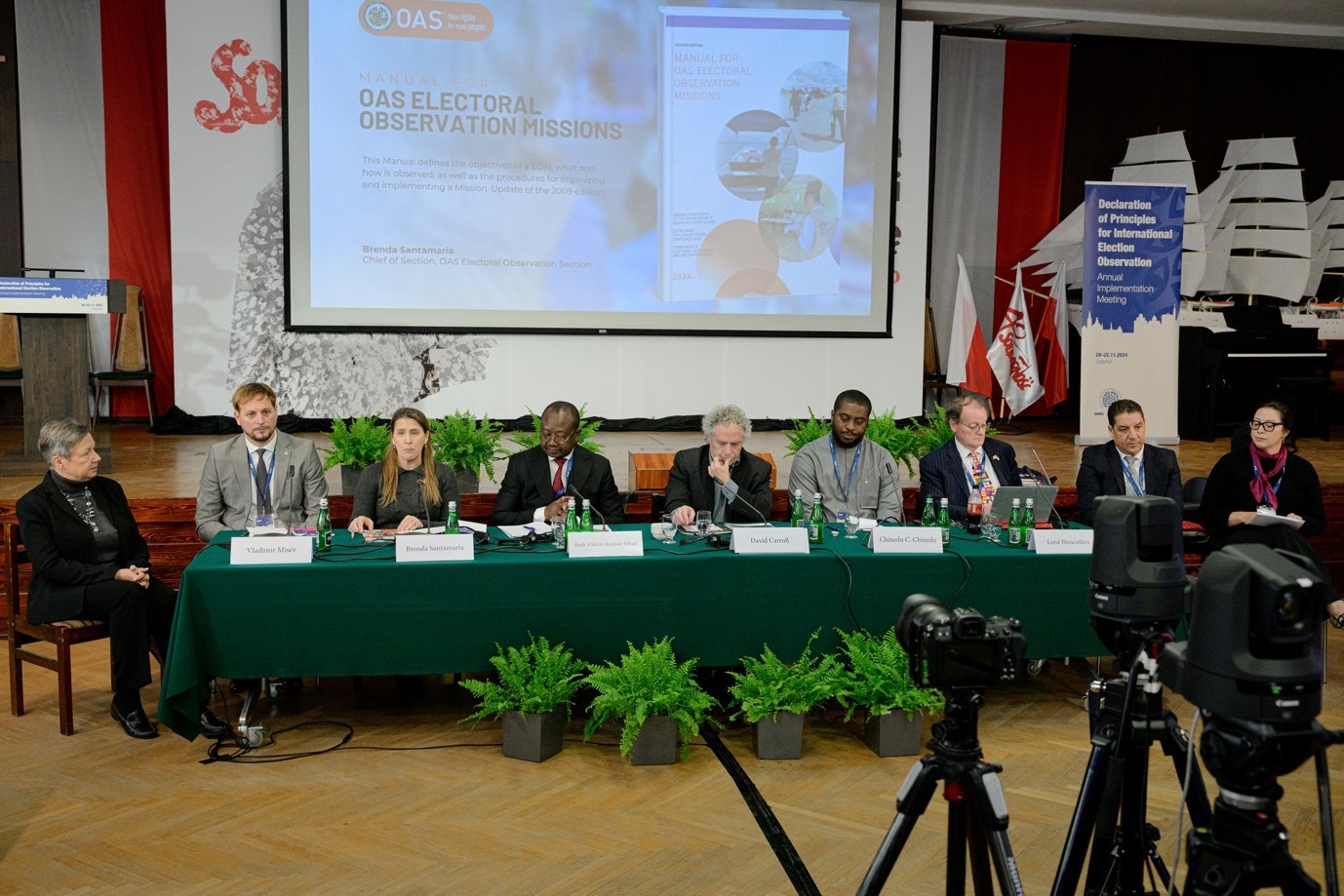
Session 5: New Tools for Election Observation – presentations from endorsers
This session was a chance for DoP endorsing organizations share with the wider DoP community new tools that they have been developing to improve their observation work.
The following tools were presented:
- Interrogating Party-led Manipulation in Elections – a model for categorizing manipulation tactics, developed by the International Republic Institute (IRI). This framework aims to help election observers identify manipulation patterns and develop targeted recommendations to strengthen electoral integrity.
- Parliamentary Network of Election Observers – this is the Council of Europe’s Parliamentary Assembly network, composed of 80 elected officials from more than 20 countries, which provides a collaborative platform for election observation across Europe.
- Encouraging Follow-up to Recommendations with Good Practice – this presentation by Election-Watch.EU highlighted the value of showcasing best practices in election observation to inspire positive change as a way of motivating stakeholders to adopt reforms.
- Media Monitoring System: EMS – the European Centre for Electoral Support (ECES) presented its media monitoring system, designed to capture and analyse election-related media coverage.
- A Manual for OAS Electoral Observation Missions: 2024 Edition – The Organization of American States (OAS) presented its new manual, which includes Integration of gender parity policies within missions, new security protocols for observers, and mechanisms for post-election follow-ups and technical cooperation.
- Handbook: Observation of Information and Communication Technologies in Elections – This updated Handbook produced by the OSCE Office for Democratic Institutions and Human Rights (ODIHR) includes expanded sections on cybersecurity, data protection, and ICT platforms, and checklists for observing processes such as voter registration, results management systems, and online training for election management bodies.
- Peer Support for Electoral Management Bodies – Economic Community of West African States (ECOWAS) presented its Peer Support and Learning Missions, designed to assist electoral management bodies (EMBs, which aim to build capacity and solidarity among EMBs to improve electoral processes across West Africa.
- Model Commitments for Advancing Genuine and Credible Elections – The Carter Center presented the Model Commitments for Election Integrity, a set of actionable guidelines for governments developed jointly by The International Institute for Democracy and Electoral Assistance (IDEA), The Carter Center, the National Democratic Institute (NDI), the International Foundation for Electoral Systems (IFES), and the Kofi Annan Foundation.
Session 6: Inclusive Election Observation
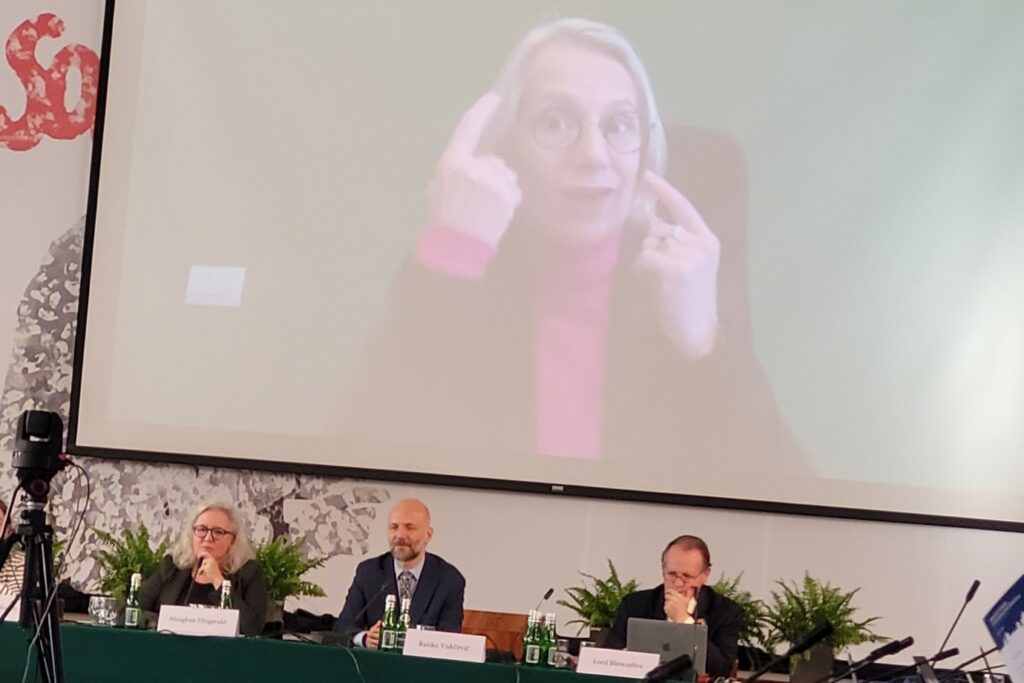
This session looked at the participation of persons with disabilities (PwD) in election observation missions. While many election observation missions look at the participation of PwD in elections as candidates and voters, often they are less good at being inclusive to PwD in carrying out their work.
Some of the panellists presented their own experiences participating in election observation activities as PwD, highlighting some of the logistical aspects that need to be taken into account for PwD, depending on their disability. These could include providing sign-language interpreter, assessing polling-stations for accessibility prior to election day, ensuring that suitable accommodation is available, as well as ensuring that briefing materials are provided in suitable formats. It was acknowledged that some of these measures imply extra costs, but the need for missions to be representative and inclusive, as well as abiding by international human rights standards relating to disability was also stressed. Furthermore, PwD have valuable insights to bring to observation, particularly around the assessment of accessibility issues as they relate to observation work. A further added value is the positive example that is set when PwD are seen to be participating in activities that are often assumed to be beyond the reach of disabled people.
Panellists also presented the action that their organizations are taking to improve recruitment, training and participating of PwD in election observation.
Session 7: Generative Artificial Intelligence and Elections
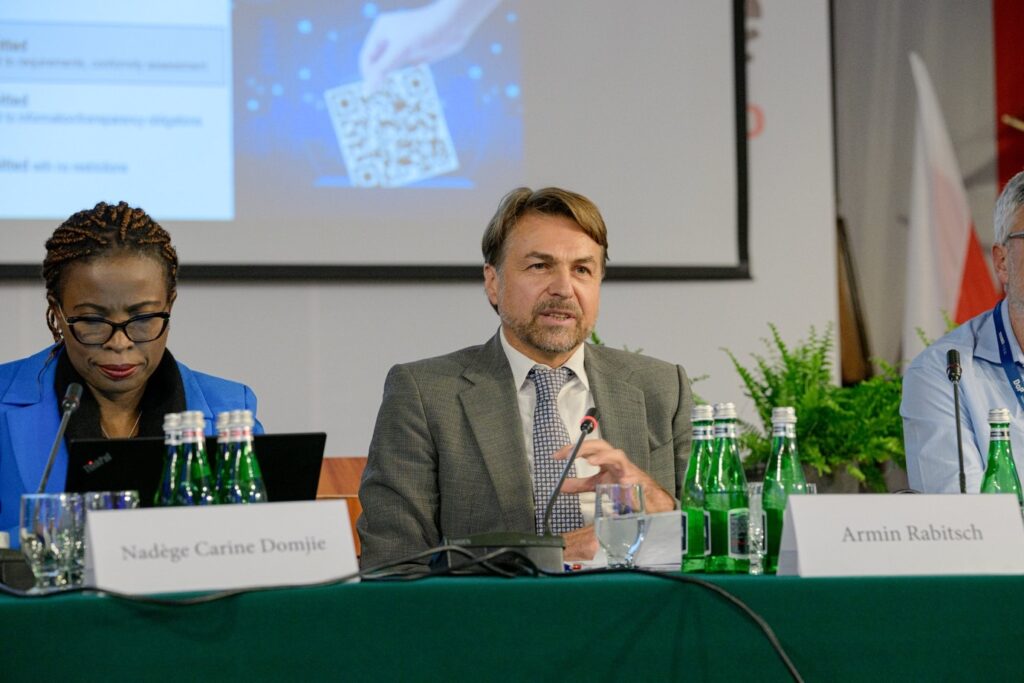
Significantly, this was the first time the topic of artificial intelligence (AI) has been the focus of a session at a meeting of the DoP community.
Panellists presented on different aspects of AI, including its potential use by EMBs, the use of AI in disinformation, the way AI can be used to prove the provenance of photos and videos related to elections, the implications of the EU’s new AI Act – which is the first regulation on AI – and the impact of generative AI on electoral integrity.
Participants generally agreed that developments in AI need to be continually monitored for their potential impact on elections, but that so far, it hadn’t in most instances had a significant impact on electoral integrity. It was suggested that DoP organizations find ways to collaborate and share their findings in this area.
Closing Remarks
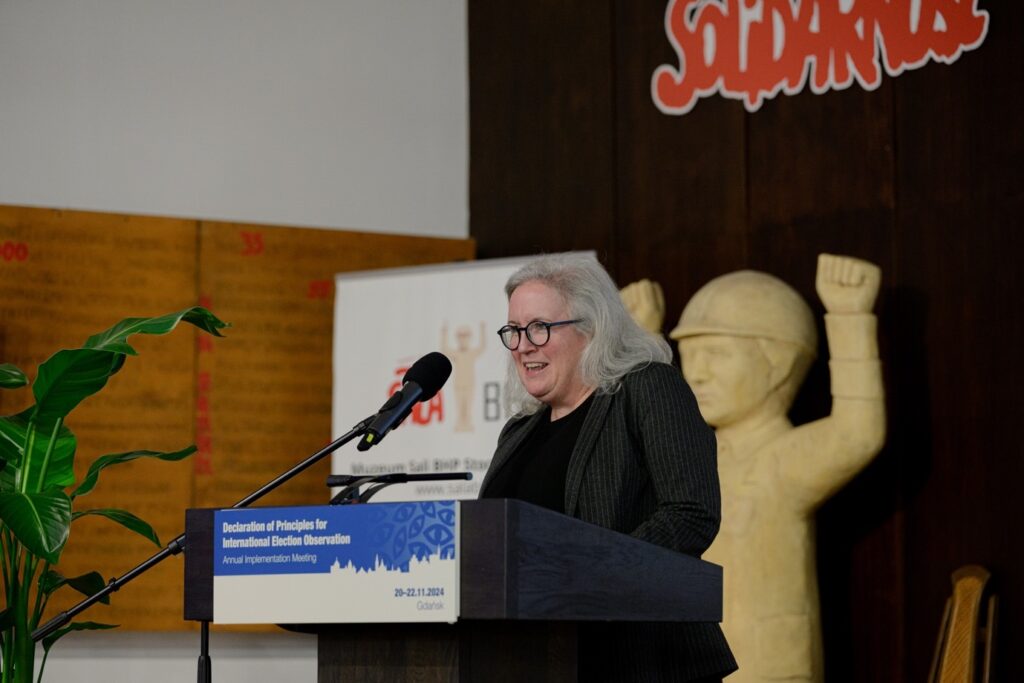
Meaghan Fitzgerald, Head of Elections of the OSCE Office for Democratic Institutions and Human Rights (ODIHR), which hosted the meeting, thanked the participants for a constructive three days. Reflecting on the venue and some of the keynote speakers, she drew parallels to the events and the discussions which took place in BHP Hall and led to a widespread recognition of the importance of democracy. The city of Gdansk was positioned as a symbolic participant of DoP meeting, with its historical context enhancing the understanding the seriousness of the threats to democracy and fragility of the rights that were once considered secure both. The address acknowledged the current global challenges to citizens’ rights, noting the persistent threats in the countries observed or in those where observers are not welcome. She also noted that over the preceding days, the meeting had delved into core challenges, examining the organizations’ capacity to observe growing threats to electoral process and develop resilience in their work to face these challenges.
Simon-Pierre Nanitelamio, Deputy Director of the UN Electoral Assistance Division (UNEAD), expressed gratitude to the outgoing chair and a host of the 2024 DoP meeting for exceptional leadership and commitment, and to the ODIHR staff for their support. He noted that UNEAD is honoured to host the 2025 implementation meeting of the DoP next year in New York on its 20th anniversary, returning to the city where the DoP initiative was launched.
